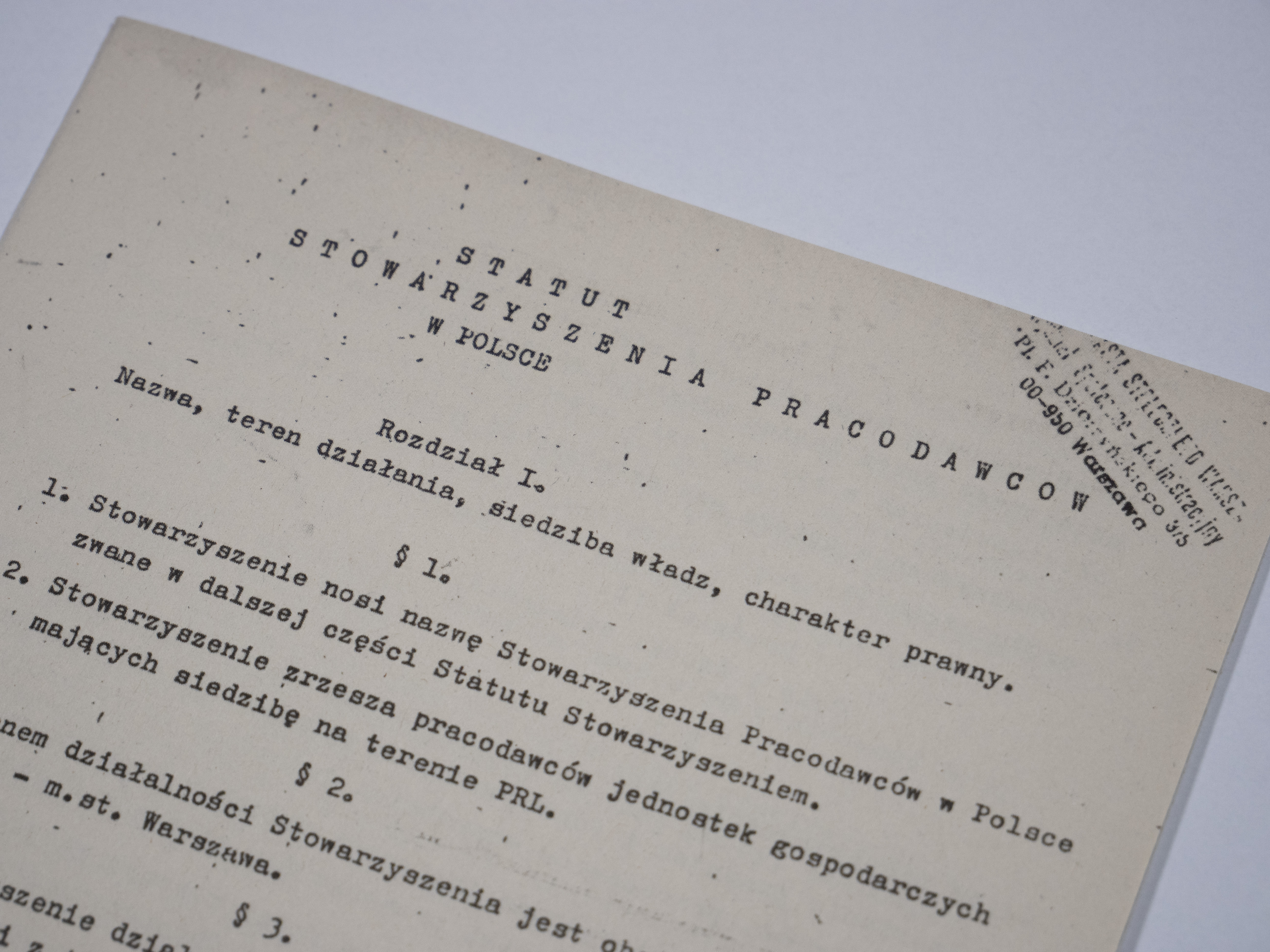Employers of Poland effectively:
- represent the interests of Polish entrepreneurs,
- support the development of the economy,
- promote innovation and entrepreneurship,
- build dialogue between business and public authorities.
Employers of Poland effectively:


We work for the common interests of employers, often competing in the market, but aware of the need to develop a common vision.

We support all initiatives aimed at strengthening the role of Polish employers and entrepreneurs.

We work with social partners – trade unions - so as to achieve the joint benefits of employers and employees from economic development, fair and stable employment conditions, safety at work and social peace.

We exert influence on public authorities at all levels so that the common interest of society, entrepreneurs and those in power - the good of Poland - can be realized in the best possible way.

We shape and promote the image of employers and entrepreneurs as entities that create national income, provide jobs and contribute to the development of our country and the realization of individual aspirations of its residents.
Since September 9, 2015, we have actively participated in the work of the Social Dialogue Council. This is an institution that we have been fighting for since the exit of trade union representatives from the Trilateral Commission. As a representative organization, we have more opportunities than before to influence the making of good laws. From October 2019 to October 2020, the Employers of Poland chaired the Social Dialogue Council [podlinkuj].

We are wherever something important for business and employers is happening: during the deliberations of parliamentary and senate committees, at the work of decision-making and advisory bodies of various levels of state administration and committees steering the use of European Union funds. Our experts, recruited from among the most distinguished specialists, issue acclaimed reports, advise policy makers and comment on economic reality. The debates we organize are an important part of public consultation.
The origins of the employers' movement on Polish soil date back to the second half of the 19th century. As in the rest of Europe, it was a response to a wave of labor strikes. Entrepreneurs of Polish origin in the Prussian and Austrian annexed territories joined the employers' organizations that existed there. Only in the lands of the Russian partition in 1905 was a national - Polish - organization established under the name of the Union of Industrialists of the Kingdom of Poland. In 1919 it co-founded the International Labor Organization. Employers' movement
This union was active until 1920. This is because in that year the employers' movement was merged, by including employers from the lands of the former partitions: into the Union of Industrialists of the Kingdom of Poland. In this way, the Central Union of Polish Industry, Mining, Trade and Finance was created. It represented the interests of the Polish economy until 1947, not interrupting its activities even during the war. Polish representatives at the ILO actively participated in the creation of regulations on working conditions and social benefits for workers. After the first elections in 1947, the organization was dissolved.
After this fact, the representation of Polish employers was removed from the ILO. Until 1989, Poland was represented in the work of the ILO by officials and directors nominated by the government. To their credit, it should be noted that they were guided by the economic interests of the state and not the political interests of the ruling party.
Since the mid-1980s, private entrepreneurs have set up business associations. In the same period, the Association of Employers in Poland was established, bringing together directors of state-owned enterprises. In 1989, the National Association of Managers was established. At a congress held on November 24-25, 1989 - acting under the Law on Associations - the organizations: Warsaw Economic Society, the Association of Employers in Poland, the All-Poland Managers' Association, the Central Association of Crafts, the Economic Society, the National Council of Polish Directors and the Society of Industrialists established the Confederation of Polish Employers (Konfederacja Pracodawców Polskich/KPP). Senator Andrzej Machalski became the first president of the KPP.
KPP became an independent, apolitical organization, whose goals were to defend the interests of employers and long-term and conflict-free economic development, to shape the conditions for cooperation with organizations from the economic environment, as well as to initiate legal solutions and unify the activities of employers, and to strive to ensure social peace through the harmonious arrangement of tripartite relations.

Since 1990, KPP has represented the interests of Polish employers at the ILO. At the same time, it became a member of the International Organization of Employers in Geneva, where it is still the only representative of Polish employers.
An important achievement of the affiliated employers' organization and trade unionists and authorities was the negotiation and signing of the "Pact for the state enterprise in the period of transformation" in February 1992. The process of negotiating this document also opened the way for the development of social dialogue in Poland.
